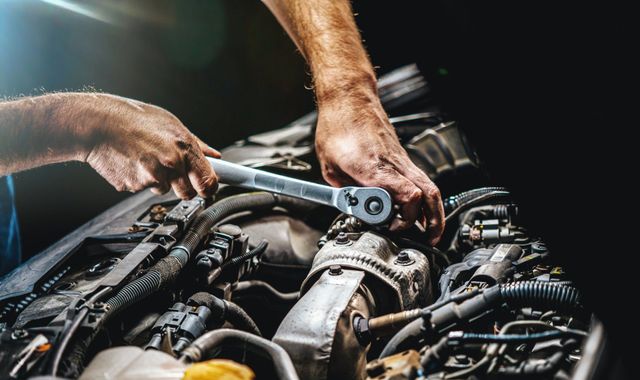Featured

Auto repairs can rapidly become a financial problem, specifically when taking care of major problems that call for considerable work and expensive parts. Understanding the elements that influence the expense of these repair work is necessary for lorry owners who intend to be planned for the unexpected. From the kind of repair work required to the construct from your cars and truck, several crucial elements can determine just how much you'll spend for repair work. Here's a better look at the most influential factors:
- Kind of Repair. The nature of the fixing plays a crucial function in the expense. Easy repairs, such as changing a trigger plug or brake pads, are typically less pricey due to the fact that they call for less parts and less labor. On the other hand, repair services that include intricate systems like the transmission, engine, or electrical systems have a tendency to be extra pricey. These fixings often require more specialized components and knowledge, resulting in greater labor fees. Furthermore, if the repair entails dismantling multiple components, the labor costs can increase significantly.
- Make and Version of Your Vehicle. The make and design of your vehicle have a considerable effect on the rate of fixings. High-end and foreign automobiles, such as BMWs, Audis, and Mercedes-Benz, usually come with higher fixing costs because of their specialized components and the competence required to deal with them. On the other hand, more common cars like Ford or Toyota normally have more economical components and are simpler for technicians to work with, which lowers fixing expenses. Additionally, some cars might need customized diagnostic tools or software program for specific repairs, contributing to the overall expenditure.
- Parts Availability and Top Quality. The cost of the components required for the repair work is one more major element. The rarity of parts, specifically for older or specialty lorries, can also drive up the price, as discovering suitable replacements can take time and initiative.
- Labor Prices. Labor prices are one of the greatest contributors to the total price of automobile repairs. These prices vary by area and service center, with city areas usually charging higher prices due to overhanging expenses. Mechanic experience additionally influences labor expenses-- more customized or experienced technicians often tend to charge more for their services. The complexity of the repair service also plays a duty; repairs that call for even more time or specialized knowledge, such as working on an engine or electrical system, will certainly cause greater labor fees. Labor is usually billed on a per hour basis, and some fixings can take a number of hours to finish.
- Extent of the Damages. If the damages is substantial and needs numerous parts to be changed or repaired, the price will increase. When major systems like the transmission or engine are influenced, the repair expense can rise swiftly due to the number of components and the labor involved.
- Lorry Age and Condition. Older cars have a tendency to require even more frequent repair work, and as components wear out over time, the expense of those repairs can boost. In enhancement, parts for older models may be more difficult to discover, which can boost both the price and time required for repairs.
- Location of the Service Center. The place of the fixing store can also affect the cost of cars and truck repair work. Additionally, dealers frequently charge a lot more for repair work contrasted to independent repair service shops, although dealerships may utilize OEM components and use customized solution for your make and design.
- Insurance Coverage and Warranty Insurance Coverage. In some cases, extended guarantees or service strategies can aid cover repair services for specific components of the vehicle. In addition, if the repair work is a result of a mishap, your automobile insurance coverage plan might cover the price.

Final thought. Several aspects influence the price of significant cars and truck repairs, consisting of the kind of repair, the make and version of your vehicle, the quality of the parts utilized, and labor fees. Understanding these components can aid you much better prepare for repair service prices and make even more educated decisions when it's time for a major solution.
Latest Posts
Vision Center South – Troy’s Trusted Optometrists Await – Book Now!
Published May 04, 25
2 min read
Marianna’s Premier Vision Care with Vision Center South Experts
Published May 03, 25
2 min read
Troy’s Leading Optometry Care at Vision Center South – Schedule Your Visit!
Published Apr 28, 25
2 min read
More
Latest Posts
Vision Center South – Troy’s Trusted Optometrists Await – Book Now!
Published May 04, 25
2 min read
Marianna’s Premier Vision Care with Vision Center South Experts
Published May 03, 25
2 min read
Troy’s Leading Optometry Care at Vision Center South – Schedule Your Visit!
Published Apr 28, 25
2 min read